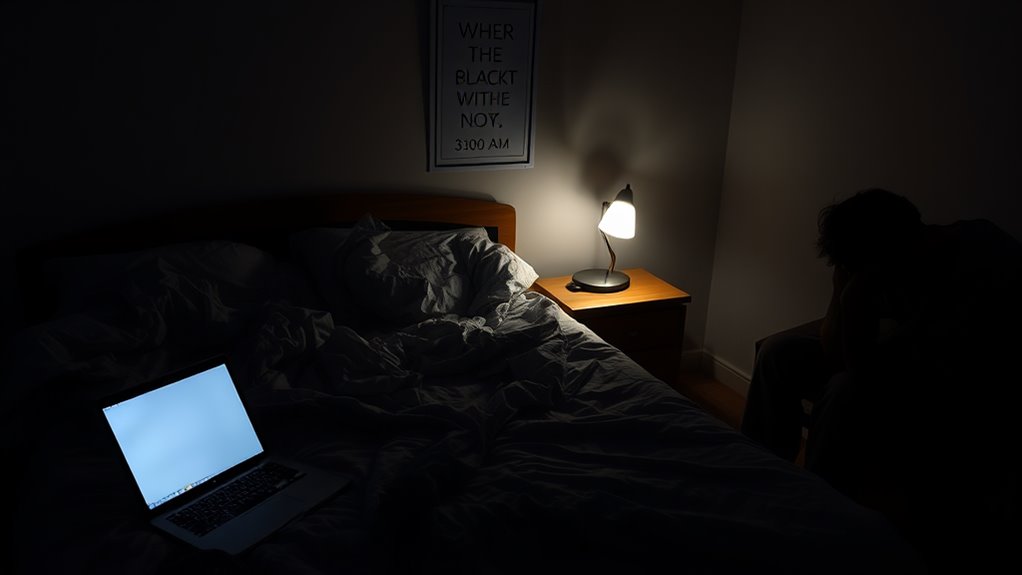Not Getting Results. Your Sleep Could Be the Reason!
Not getting the results you want? It could be linked to your sleep. Poor sleep raises ghrelin, your hunger hormone, and lowers leptin, which helps control appetite. This imbalance can lead to cravings for unhealthy foods and decreased motivation to exercise. Additionally, lack of quality sleep hampers your metabolism and recovery. Prioritizing sleep can revitalize your efforts and help you achieve your goals. There’s more to uncover about how your sleep impacts your weight management journey.
The Science of Sleep and Weight Management
Have you ever wondered how your sleep habits affect your weight?
Poor sleep not only leaves you feeling tired but can also lead to unwanted weight gain.
When you skimp on sleep, your body may produce more ghrelin, the hunger hormone, and less leptin, which signals fullness.
As a result, you might crave high-calorie foods and struggle to control your appetite.
Moreover, fatigue can lower your motivation to exercise, compounding the issue.
Understanding the link between poor sleep and weight gain can empower you to prioritize rest, making it easier to achieve your weight management goals and improve overall health. Additionally, prioritizing sleep supports hormonal balance and can enhance your weight loss efforts.
How Lack of Sleep Affects Metabolism
Sleep deprivation doesn’t just affect your appetite; it can also disrupt your metabolism.
When you’re not getting enough rest, your body struggles to regulate essential metabolic processes.
Here’s how lack of sleep can impact you:
- Insulin Resistance: Sleep deprivation can lead to insulin resistance, making it harder for your body to manage blood sugar levels effectively.
- Decreased Energy Expenditure: Without adequate sleep, your body’s energy expenditure decreases, which can hinder weight loss efforts.
- Hormonal Imbalance: Sleep loss can disrupt hormones like cortisol and leptin, further complicating metabolic function.
Additionally, quality sleep is essential for muscle repair and body recovery, which plays a crucial role in maintaining a healthy metabolism.
Addressing your sleep issues could be key to enhancing your metabolism.
The Role of Sleep in Appetite Regulation
When you’re sleep-deprived, it can significantly skew your appetite and food choices. Lack of sleep disrupts hormones like ghrelin and leptin, which regulate hunger and fullness. You might find yourself craving high-calorie, sugary foods, making it harder to stick to healthy eating habits. This imbalance can lead to overeating and weight gain, creating a cycle that’s tough to break. Moreover, your brain’s ability to make sound decisions is compromised, leading to impulsive food choices. Prioritizing quality sleep can restore hormonal balance, helping you regain control over your appetite and make healthier decisions that align with your goals. Additionally, adequate sleep enhances your metabolic rate, aiding in calorie burn throughout the day.
Sleep Deprivation and Its Impact on Exercise Performance
Sleep deprivation can significantly hinder your ability to exercise effectively.
When you’re tired, your body struggles to recover and perform at its best.
Here are three ways sleep deprivation impacts your workouts:
-
Reduced Strength: You may find it harder to lift weights or perform high-intensity exercises.
-
Decreased Endurance: Fatigue can lower your stamina, making it tough to finish your routine.
-
Impaired Focus: Lack of sleep affects your concentration, increasing the risk of injury during workouts.
Additionally, quality sleep is essential for recovery and can help you unlock your full potential in the gym! Prioritize sleep to unlock your full potential in the gym!
Tips for Improving Sleep Quality for Better Results
Lack of sleep can derail your workout performance, but improving your sleep quality can significantly enhance your results in the gym.
Start by establishing a consistent sleep schedule; go to bed and wake up at the same time daily.
Create a relaxing bedtime routine, like reading or meditating, to signal your body it’s time to wind down.
Limit screen time at least an hour before sleep, as blue light disrupts melatonin production.
Keep your bedroom dark, cool, and quiet to create an ideal sleep environment.
Lastly, avoid heavy meals and caffeine close to bedtime to promote deeper, restorative sleep. Additionally, recognizing emotional triggers can help you address late-night snacking, which may interfere with your sleep quality and overall results.





